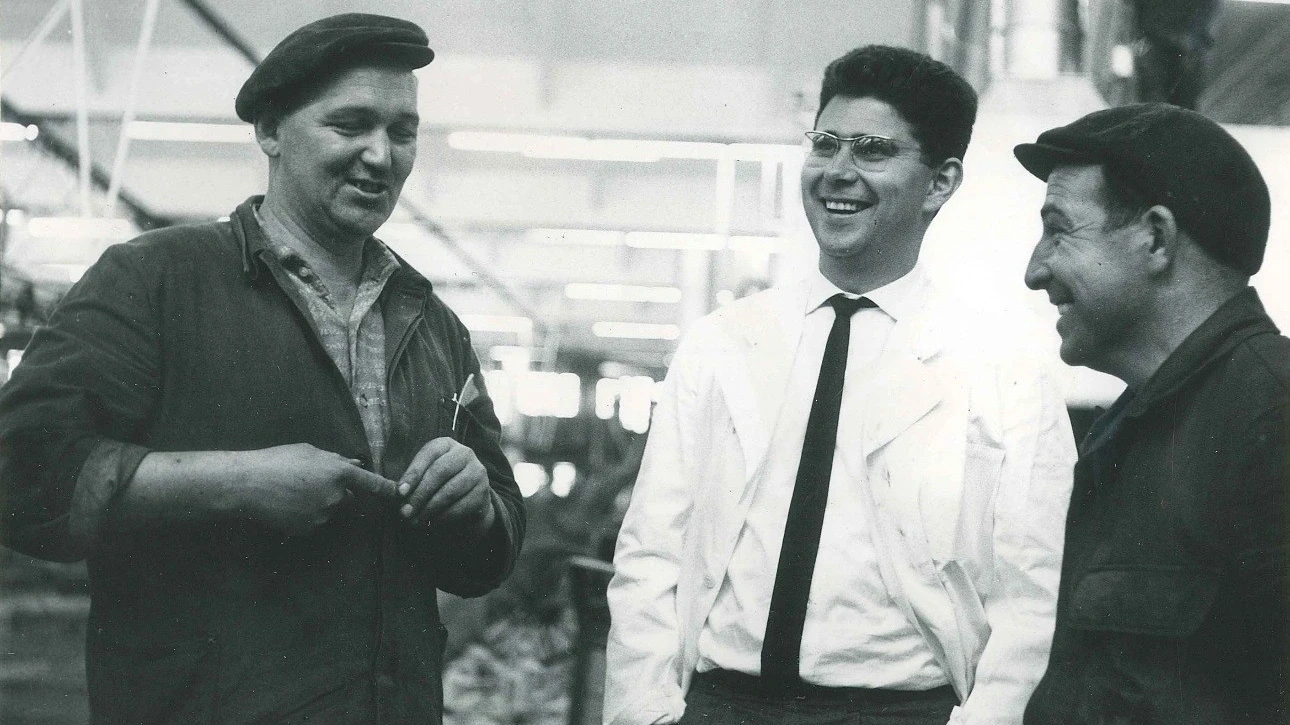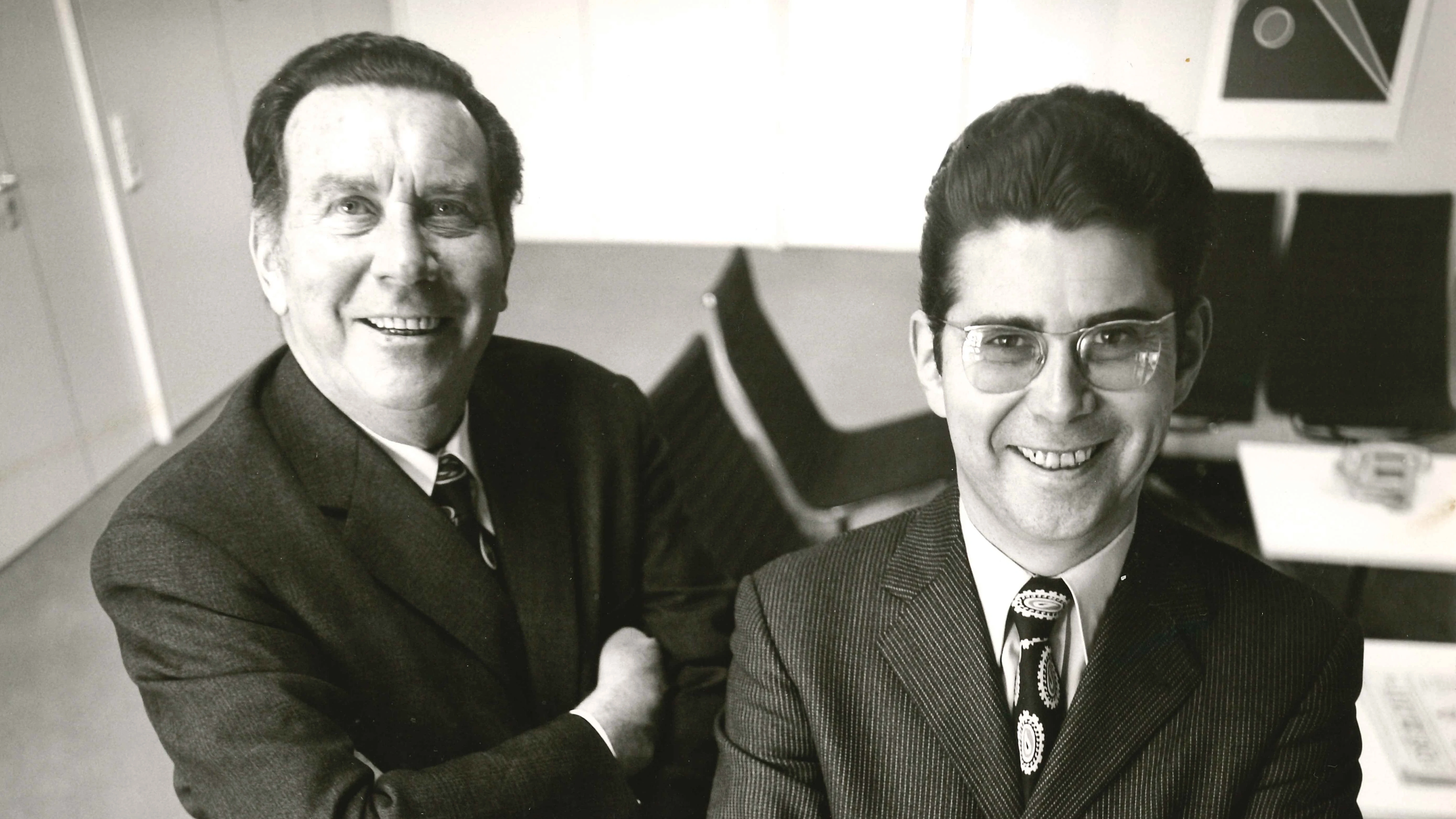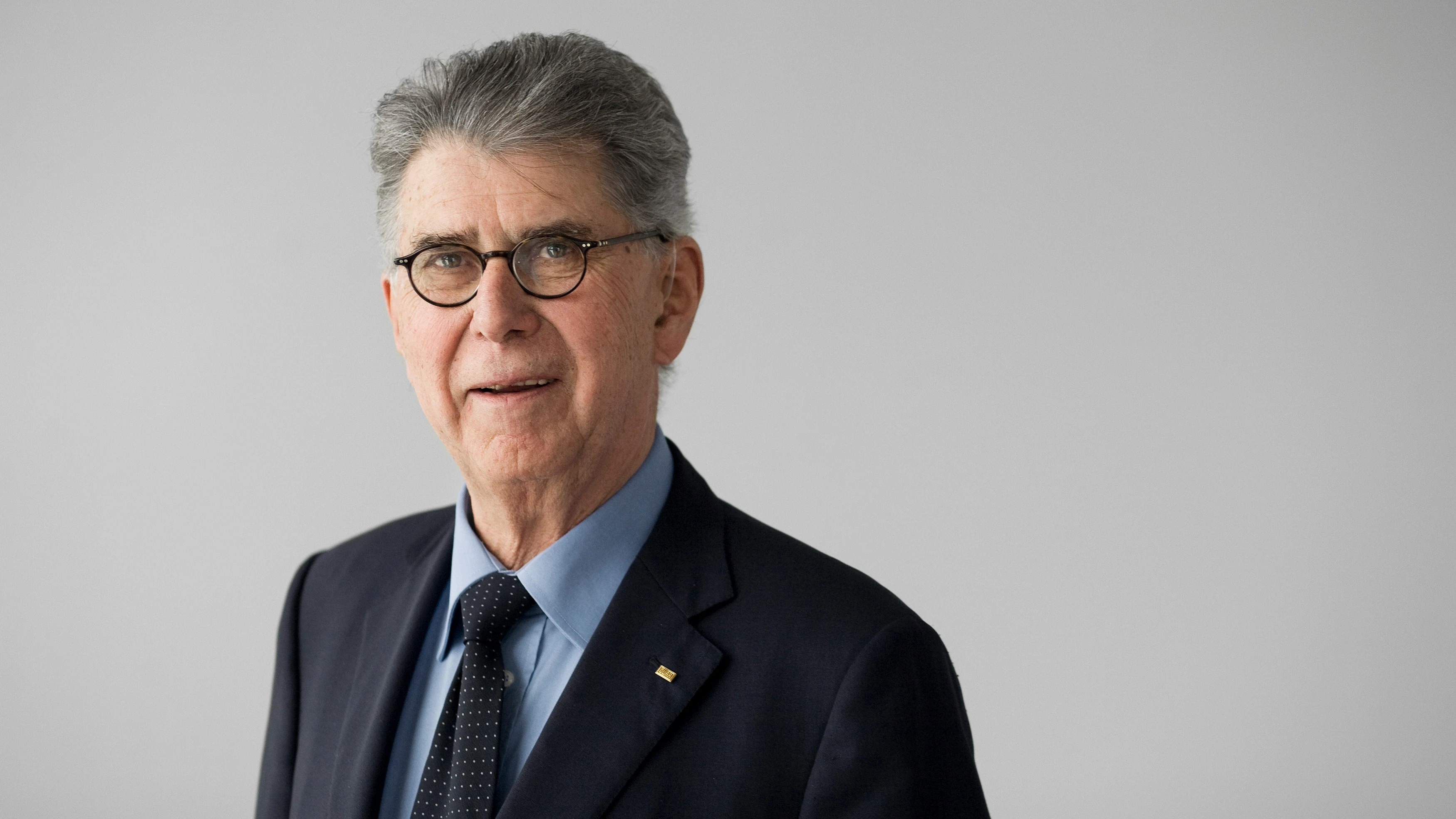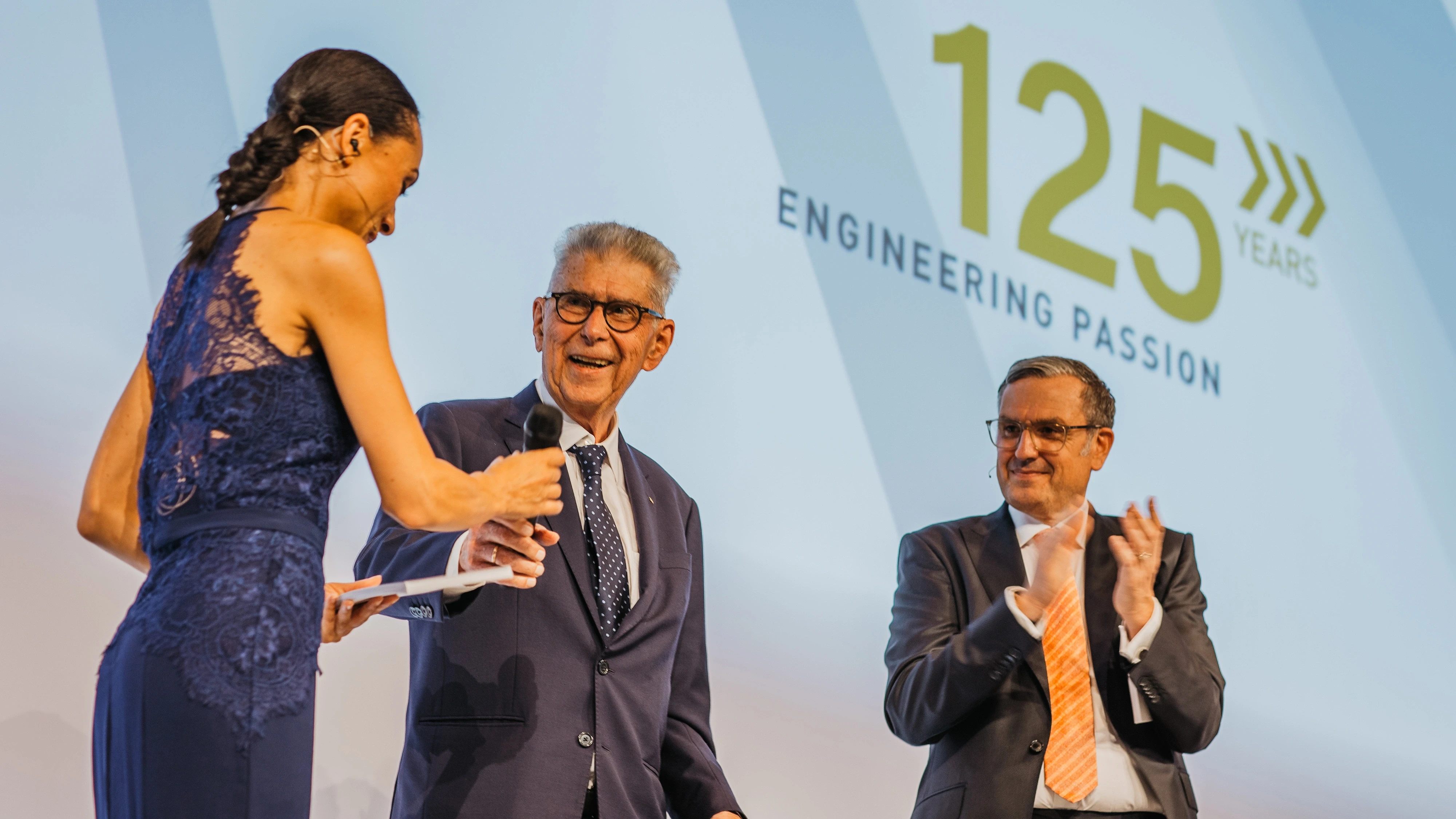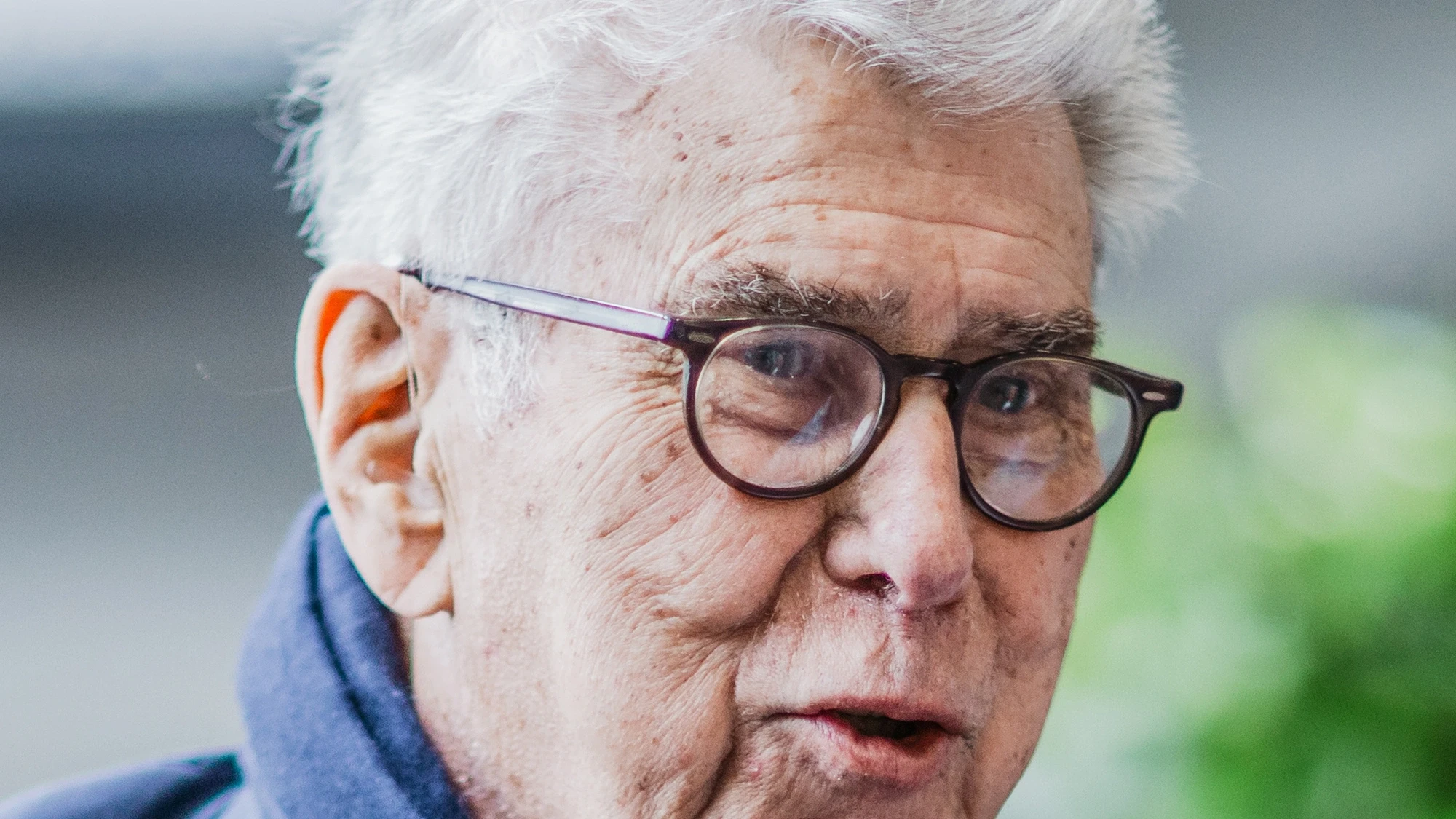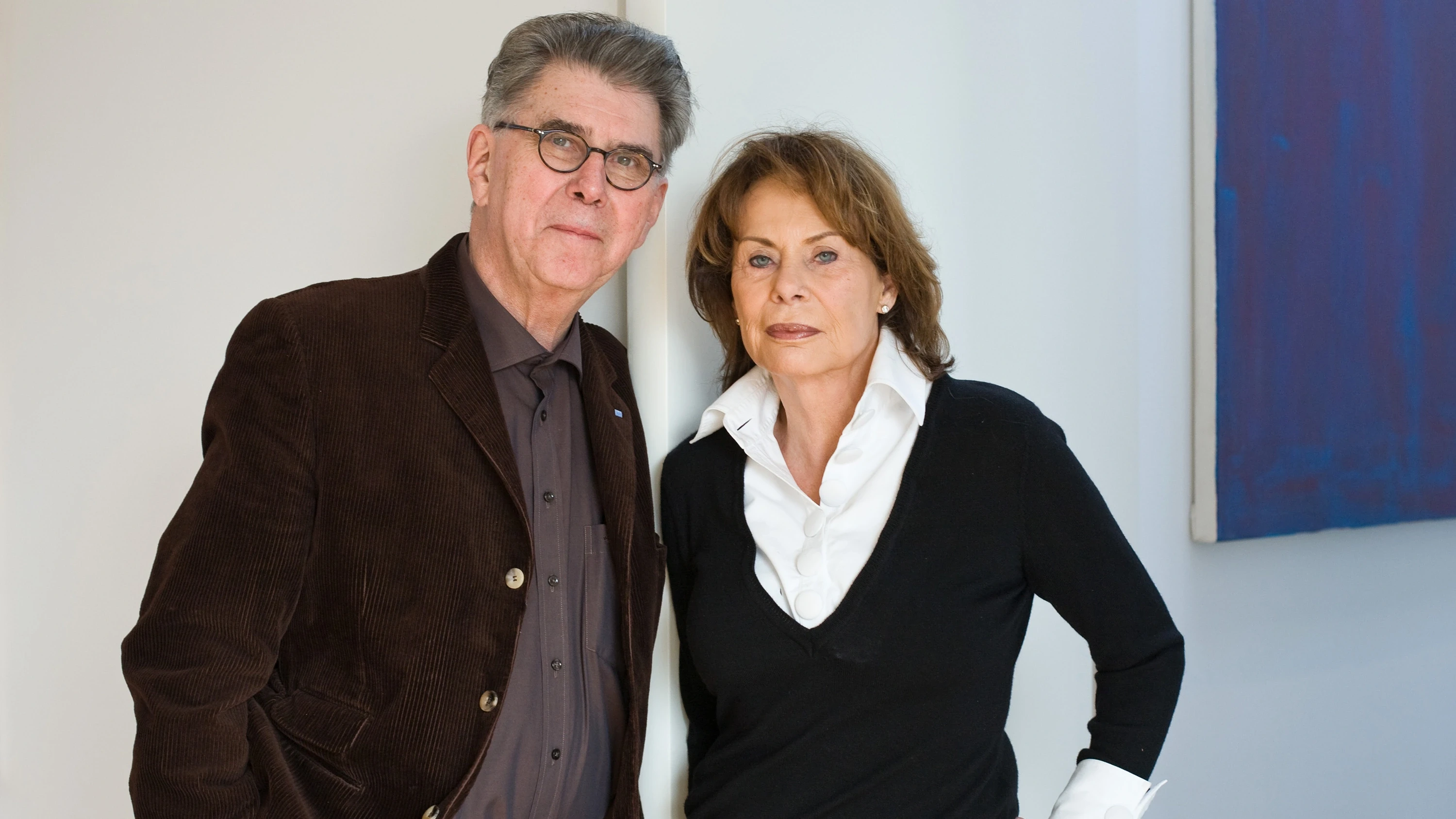Beginnings in his father’s business
Heinz Dürr was born in Stuttgart in 1933. After finishing secondary school, he completed an apprenticeship as a locksmith in Uerdingen and then went on to study mechanical engineering in his hometown. Even as a young man, he had a wide range of interests, listened to jazz, read Jean-Paul Sartre, and played in the first team of the renowned Weissenhof tennis club. In 1957, at the age of 24, he joined the family business to stand in for the sick senior engineer in the design department. At the time, his father Otto Dürr was the managing director, while his mother Betty acted as the “commercial conscience” overseeing the finances. Heinz Dürr’s beginnings in the family business coincided with a period of major change: In the post-war period, the sheet metal work specialist Dürr became an industrial company, specializing in equipment engineering and surface processing. This had laid the foundation for its current position as a world market leader in painting technology.
At the helm of the family business
At the age of 27, “HD”, as Heinz Dürr was known in the company, joined the management team. Business with the automotive industry was expanded. Heinz Dürr boldly forged ahead with the internationalization of the company. In 1964, he founded the first foreign subsidiary in Brazil — an unusual step for a medium-sized Swabian company at the time. Under the management of the junior boss, Dürr built the first complete automotive paint shop for Volkswagen in São Paulo. Further companies were founded in the UK, France, Spain, Italy, Austria, Mexico, the USA, South Africa, India and China, among other countries. Heinz Dürr and his wife Heide gave the corporate culture a modern edge. In the 1960s, Dürr was one of the first industrial companies with an employee newspaper, a library, artwork displayed in the buildings as well as theater and concert performances in the factory.
In the early 1970s, the ever-curious entrepreneur made a name for himself in the business world. At the proposal of Hanns Martin Schleyer, Heinz Dürr became Chairman of the Employers’ Association of the Metal Industry in North Baden/North Württemberg in 1975. He negotiated innovative collective bargaining agreements with Franz Steinkühler, head of the metalworkers’ union IG Metall in Baden-Württemberg. “The fact that I was fighting together with Franz Steinkühler to modernize the world of work irritated some people on the employers’ side,” Heinz Dürr later said with a smile.
AEG, Deutsche Bahn and Carl Zeiss Foundation
In 1980, Heinz Dürr stepped down as CEO of his company and became head of the ailing electrical company AEG. Aside from the entrepreneurial challenge, it was AEG's technological potential that appealed to him. The surprising move had been initiated by the then head of Bosch, Hans Lutz Merkle. Heinz Dürr led AEG through a settlement and brought it under the control of Daimler-Benz AG in 1985, where he joined the Board of Management in 1986.
In 1990, Heinz Dürr floated his own company Dürr AG on the stock market. The proceeds were used to acquire application technology specialist Behr, which went on to become Dürr’s successful painting robot segment.
In 1991, at the request of German Chancellor Helmut Kohl, Heinz Dürr took over as CEO of Deutsche Bundesbahn (German Federal Railway), thus assuming another role in the public eye, similar to the one at AEG. As part of the railway reform, he promoted the merger of Bundesbahn with the East German Reichsbahn and its transformation from a state-owned group into the service company Deutsche Bahn AG. In 1997, the 64-year-old moved to Deutsche Bahn AG’s Supervisory Board and was its chairman until 1999. From 1999 to 2003, Heinz Dürr was commissioner of the Carl Zeiss Foundation.
The company as a social organization
As an entrepreneur, Heinz Dürr felt a strong commitment to the public good, going back to Ernst Abbe and Walther Rathenau, the historic business figures at Zeiss and AEG. Heinz Dürr also referred to the former head of Deutsche Bank, Hermann Josef Abs, as well as to the philosopher Odo Marquard and his dictum that “future needs origin.” His economic thinking revolved around the notion of the “company as a social organization.” Heinz Dürr believed that a company has a responsibility toward society and its employees. “It must deliver proper products and services that society needs. It should look after the people in the company and make sure that those who give the company money receive a decent return.” Heinz Dürr opposed the doctrine of pure profit maximization: “I do not subscribe to the economist Milton Friedman’s statement that the only social responsibility of companies is to increase their profits.” According to Heinz Dürr, profit is not an end in itself, “but a measure of whether the corporate social organization is working. But it is necessary to prevent the company from becoming a burden, usually to the taxpayer.”
Heinz Dürr saw himself as a committed SME entrepreneur. To him, SME meant “personal instead of technocratic leadership. The company boss knows his staff and talks to them.” In keeping with his Swabian mentality, Heinz Dürr always advised his employees to be modest: “If you think you are somebody, you stop becoming somebody.”
Versatile personality
From 1990 to 2013, Heinz Dürr was Chairman of the Dürr AG Supervisory Board. Since 2006, Prof. Alexandra Dürr, one of Heinz and Heide Dürr’s three daughters, has represented the family, which holds a 29.7% share, on the Supervisory Board. Heinz Dürr maintained close ties with the company as Honorary Chairman of the Supervisory Board until the end. The Berlin-based entrepreneur frequently visited locations in Germany and abroad. With passion and a wealth of memories and anecdotes, Heinz Dürr was committed to celebrating the 125th anniversary of “his” company in 2022.
According to Heinz Dürr, his wife Heide was always his most important advisor. Together with her, he founded the Heinz and Heide Dürr Stiftung in 1998, based on Section 14 of the German Basic Law: “Property entails obligation. Its use shall also serve the public good.” The foundation focuses mainly on science and research, early-years education, and German-speaking theater.
In recent years, Heinz Dürr has focused intensively on the topics of energy efficiency, digitalization, and artificial intelligence. Being an avid reader, Heinz Dürr admired the Austrian author Thomas Bernhard, and had written three books himself: “In der ersten Reihe — Aufzeichnungen eines Unerschrockenen” (In the front row — notes from a dauntless man); “Über das Alter — Ein Gespräch mit Cato über Jugendwahn, Weisheit und Vergänglichkeit” (Talking about age — a conversation with Cato on the obsession with youth, on wisdom, and on transience); “Alter Mann, was nun? Zwischenrufe aus der letzten Reihe” (What now, old man? Interjections from the back row). In his books, he reflected — sometimes tongue-in-cheek — on his career and on getting older. Heinz Dürr worked in his office on Berlin’s Gendarmenmarkt well into old age, and had close ties both in Germany’s capital and in his Swabian home province.
Dr. Jochen Weyrauch, CEO of Dürr AG, about Heinz Dürr:
“The Dürr Group with its more than 20,000 employees mourns the death of Heinz Dürr. He set the course for our current success and was a role model and unifying figure well into old age. Heinz Dürr has shaped the DNA of our company — with confidence, wisdom, a belief in what is possible and great closeness to our employees. He also took on responsibility beyond his own company and helped shape the history of the German economy. As an entrepreneur, Heinz Dürr has always thought outside the box and questioned things. This made him an extraordinary personality with an impressive range of interests and insatiable curiosity.”

